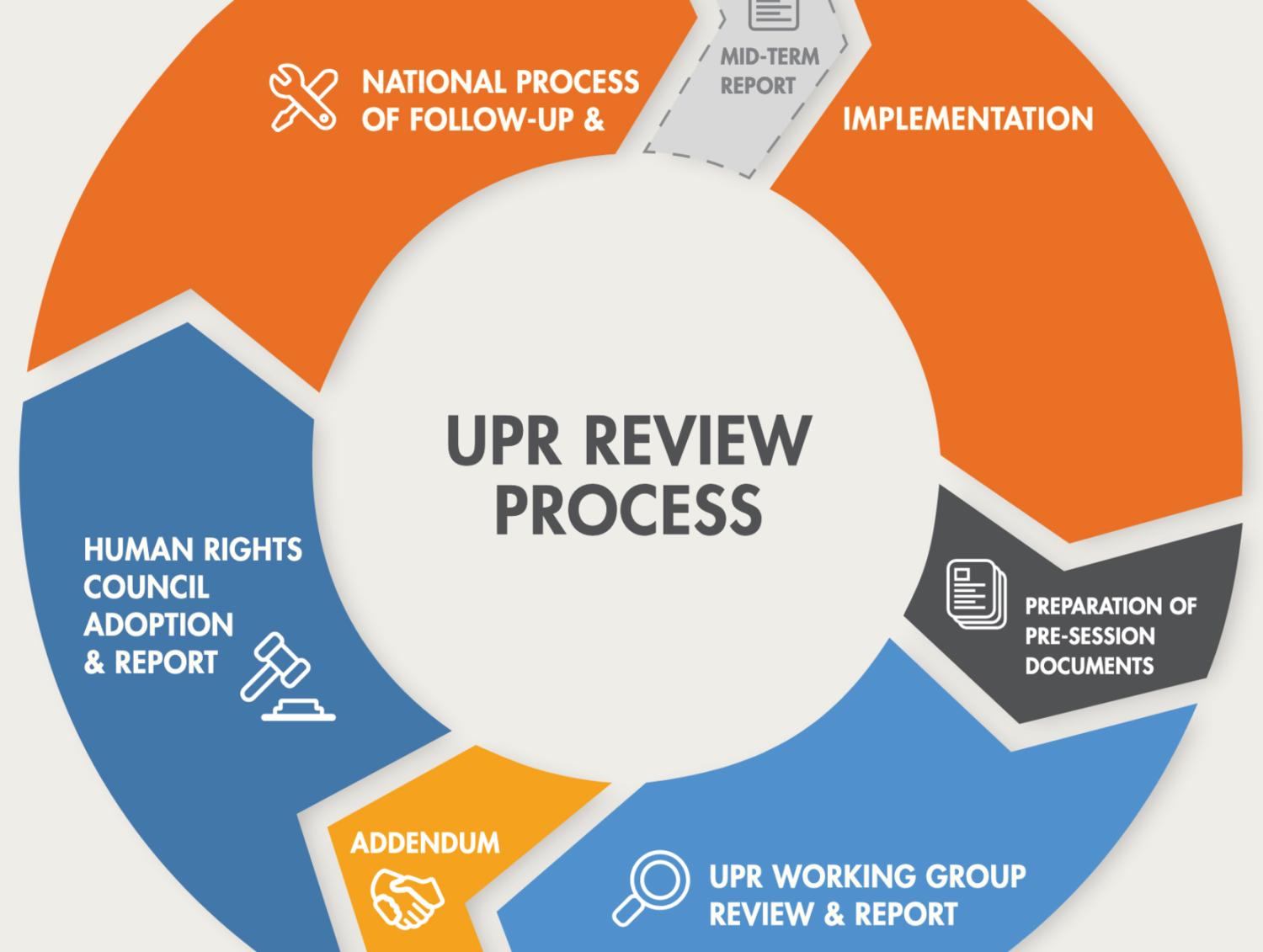UPR Primer: Indigenous Priorities in the Universal Periodic Review of the United States

The Universal Periodic Review of the U.S. – slated for November 9, 2020 – will identify areas where the country can better protect and preserve the human rights of Indigenous Peoples. Part one of this article looks at the review process and past considerations concerning Indigenous Peoples.
Established in 2006, the Universal Periodic Review (UPR) is the world’s only mechanism that provides a comprehensive review of countries' human rights records and their adherence to international standards. The UPR is designed “to prompt, support, and expand the promotion and protection of human rights on the ground,” with the stated goal to improve “the human rights situation in every country with significant consequences for people around the globe.”
Overseen by the UN Human Rights Council, the rigorous process evaluates all 193 United Nations Member States and offers solutions and guidance to deficiencies and known human rights violations. To ensure fair representation, the UPR Working Group, consisting of 47 members of the Human Rights Council, conducts the review, and any UN Member State wanting to take part is able to provide observations and recommendations as part of the process. Every country’s review is led by a team of three randomly-selected States, known as a troika.
Reviews are based on documents submitted by the State under review, reports by independent human rights experts and groups vetted by the UN, and written and verbal testimony from other stakeholders, including national human rights institutions and non-governmental organizations. When the review is complete, an outcome report is adopted, summarizing the observations, questions, comments and recommendations, as well as a response by the State under review.
Assessments use human rights obligations set out in five source areas: “(1) the UN Charter; (2) the Universal Declaration of Human Rights; (3) human rights instruments to which the State is party (human rights treaties ratified by the State concerned); (4) voluntary pledges and commitments made by the State (e.g. national human rights policies and/or programmes implemented); and, (5) applicable international humanitarian law.”
The UN Declaration on the Rights of Indigenous Peoples (UNDRIP) also serves as a framework for evaluations and recommendations as to issues specific to the rights of Indigenous Peoples.
INDIGENOUS PEOPLES AND THE UNIVERSAL PERIODIC REVIEW
A search of all Member State reviews to date in the UPR database shows over 1,100 recommendations catalogued as critical to Indigenous Peoples’ rights and welfare since the process began. These fall into a range of broad categories, including:
- developing national strategies to address the civic, land and economic rights of Indigenous Peoples;
- implementing health, safety and education policy;
- combating racism, hate speech and cultural and structural discrimination;
- ensuring full participation of Indigenous Peoples in decision-making processes that involve them;
- the right to consultation and free, prior and informed consent on legal, administrative, policy or development matters that affect them.
More specific issues include the guarantee of rights to ancestral territories; reducing social conflict in the extractive sector by improving consultation; preventing violence against Indigenous Peoples and the human trafficking of Indigenous women and children; building public awareness about ethnic and racial equality for Indigenous Peoples; increasing intercultural services such as interpreters and bilingual educators; and assistance and protection of human rights defenders.
In the past two reviews, the United States received 21 recommendations directly related to Indigenous Peoples, and half were to better implement UNDRIP. More detailed recommendations were “to ensure the participation of indigenous peoples in the decisions affecting their natural environment, measures of subsistence, culture and spiritual practices” (Bolivia), and to ensure “that all reports of violence, in particular sexual violence and rape against indigenous women, are thoroughly investigated, with a focus on ending impunity and bringing perpetrators before justice” (Finland).
With the U.S. review to take place in 2020, its first review since 2015, there are several areas where the country must better protect and preserve the human rights of the more than five million Indigenous Peoples who reside in its borders.
Continued in Part 2: Indigenous Peoples and the 2020 Human Rights Review of the U.S. during a Global Pandemic.

